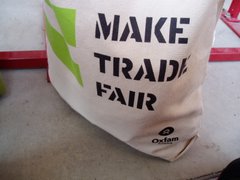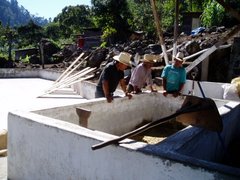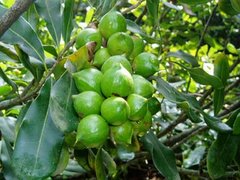"Fair Trade" is gathering recognition as a groundbreaking approach to development, symbolizing the integration of human rights, ecological and economic concerns. Through attention to social responsibility, environmental sustainability and market profitability - the concept of a triple bottom line - Fair Trade suggests potential to make attainable the intent and efforts exhaustively discussed by proponents of sustainable development. With this blog I hope to explore and evaluate the effects of Fair Trade as a development concept and potential policy trend. What makes Fair Trade "fair" and who defines the notions of fairness and equity from which it is pursued? Is it only just "fair enough" to address the social and environmental concerns of protesters in the anti-globalization movement as well as new categories of "ethical consumers" from wealthy countries in North America and Europe? As a movement, Fair Trade is both a conduit for and response to the content of free trade bashing. Its idealistic supporters see Fair Trade as "alternative," while technocratic interlopers define it as a market niche. The remarks on this blog will include an evaluation of Fair Trade as a sustainable development approach as well as a critical investigation of the practical aspects of implementing conceptual development strategies like Fair Trade, through the analysis of arrangements in coffee production for Fair Trade and other markets. As it currently exists, Fair Trade is the fastest growing niche in the specialty coffee sector, giving consumers the opportunity to express solidarity with their purchasing power while reinforcing a new market-led version of social justice. Many factors influence the reliability of Fair Trade benefits as they are distributed to the producers that participate in markets for these certified, specialty coffees. Producers able to sell their coffees to the organic, Fair Trade market do so according to numerous principles and rigorous standards that respond to consumer preference and quality concerns.
As someone in support of efforts to "make trade fair" (Oxfam campaign slogan), my original intention was to rely on and respond to debates that pit Free Trade vs. Fair Trade, pursuing a sweeping comparison of these divergent trade strategies that would hopefully reveal and emphasize all of the presumed goodness associated with the latter. Yet, on closer examination the progressive force of Fair Trade is beginning to reveal its own contradictions. After all, it is unavoidable that Fair Trade, while promoted as a robustly alternative, participatory and principled approach, functions within a conventional market-based framework, adheres to the same neoliberal logic and follows similar patterns associated with the dominant free trade orientation that Fair Trade activists usually rant about.
Is it time for Fair Trade Plus?
Subscribe to:
Post Comments (Atom)






No comments:
Post a Comment